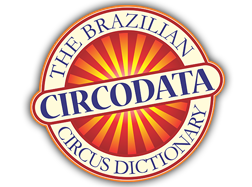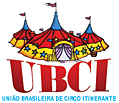Arrelia
Waldemar Seyssel
Jaguariaíva, Paraná, Brazil, 1905 - Rio de Janeiro, Brazil, 2005
Clown. Son of Ferdinando Seyssel (clown Pinga Pulha) and Otília Fernandes, his family comes from noblemen of Seyssel, near Grenoble, in France. His paternal grandfather, Julio Seyssel, was a musician and a physical education teacher, who abandoned his family to marry a young equestrian artist who was the daughter of a circus owner. Early in his artistic career Arrelia started out in acrobatics, trapeze, juggling acts, and also as an actor. At the age of seventeen he was a professional clown however was only known as Arrelia five years later. The word arrelia comes from Spanish and means "tease." He had a long life in the circusring and earned his place in the Brazilian circus and culture. As an artist he was very wellknown and remarkable. He performed in the cirucuses, Seyssel and Piolin, in São Paulo for decades. The Seyssels came to Brazil touring with the Circo Charles Brothers. When his grandfather returned to Chile, his father and uncle set up the Circo Irmãos Seyssel which later belonged to Arrelia and his brothers. He was the first clown to appear on Brazilian television. In 1953, he started the program "Circo do Arrelia" in TV Paulista, that later became TV Record. He set up a tent in the patio of the station and performed with his nephew, Walter Seyssel (clown Pimentinha), until 1974. Arrelia created the slogan "como vai, vai, vai? Tudo bem, bem , bem?" (How are you, you, you? Very well, well, well?) a great success among children at that time. He was very eclectic in the arts, writing and directing over 100 sketches, as well as a screenwriter, costume designer and scenographer. Arrelia formed duos with Feliz Batista and his brother Henrique Seyssel. From 1969 to 1974 he directed the Comissão Estadual de Circo da Secretaria de Cultura do Estado de São Paulo. Besides his circus activities, he is also the author of O Menino que queria ser palhaço.








